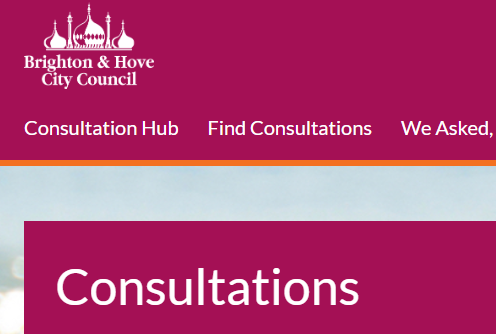Older people are at risk of being ignored, overlooked and excluded by the council when it makes decisions, a pensioner has warned.
Retired IT worker Suzie Silver, 65, from Hove, is increasingly concerned that Brighton and Hove City Council makes decisions having made crucial information available online only.
She fears that people over 55 are missing out and quoted Office for National Statistics figures showing that a quarter of over 65s had never used the internet. Of those, more than half had no intention of ever doing so.
Ms Silver said: “With an ageing population, the percentages in Brighton and Hove may be higher.
“For major changes that will affect them, such as the new cycle lanes along the Old Shoreham Road, I feel very strongly that conducting any consultation solely online is effectively disenfranchising a high proportion of elderly and disabled residents, as well as those who, for whatever reason, have elected not to use the internet.”
When she raised the issue with the council, the advice was to call and request surveys over the phone.
She said: “I don’t really understand how anyone with no internet access is expected to know about this consultation when the council’s only intimation of its intention to make the cycle lanes permanent has been online.
“The cycle lane is still clearly signposted as ‘temporary’ and, importantly, older people, including all over 70s, are still advised to stay at home because of the pandemic.”
Labour councillor Peter Atkinson, who represents North Portslade, is equally concerned about how the council will reach out to those who are not online.
He wants to make sure that those who want to can fill in the consultation form for the Old Shoreham Road temporary cycle lane and other covid-19 related travel measures.
Councillor Atkinson said: “Back in 2009 when cycle lanes were consulted on, over 14,000 residences were mail-dropped and given a paper survey.
“Eleven schools and local businesses were also properly consulted.”
He has asked council officers what was being done to help raise awareness of consultations and help older people complete forms.
The travel consultation online involves clicking icons on a map before clicking on a link to access a specific form to feedback on the cycle lane.
The council’s Customer Insight Annual Report for 2019-20 found telephone contact had fallen by 11 per cent compared with 2018-19, with 266,698 calls received.
The number of online forms submitted went up by 25 per cent to 311,547 in the past year.
The number of emails went down slightly by 1 per cent, with 395,925 received in 2019-20.
The council’s website received 11 million unique page views from 3.4 million people.
The most popular page was for refuse and recycling collection day checks, with 236,537 views in the past year, followed by the council tax and parking pages.
Brighton and Hove City Council was approached for comment.










Not just “older people”. Council is excluding many people from decision making and it is not just to do with online access. Where are the consultations on changes to roads and cycle lanes? For far too long council officers have held too much power and elected representatives are left powerless. In part because of an ever changing, “minority” administration. The city is ruled by a handful of unelected despotic, opinionated, unaccountable council officers. Time for democracy to prevail and corrupt practices to cease.
I totaly agree whole heartedly.
Well said Dave!
I agree with David, The Council isn’t interested in it’s ageing population’s opinions. This is extremely
offensive and ageist. Shame on you Brighton Council.
The council is trying to save money by moving so many things online. Not just decision making but customer contact too. It’s all done in the name of efficiency and quoting figures for digital access which they say supports the change. In reality it’s about saving money which they have no choice but to do. Sadly it leaves out large sections of the community and forgets that having digital access does not necessarily mean you are comfortable using things online. They say they offer access and help through libraries but again that does not guarantee people can or will take it up. And even if they do get some training it doesn’t mean they will use it or even remember how to. It’s much harder to remember things you don’t use every day.